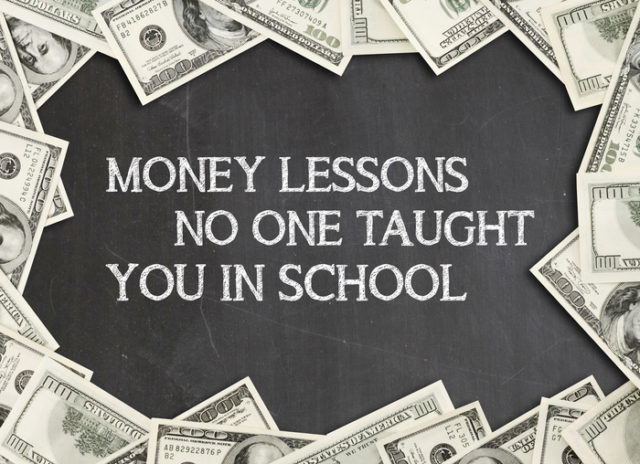Money Lessons No One Taught You in School

Times, they are a changin’.
Traditionally, if you study, work hard, and get a good job, you will be financially stable and have enough money to retire one day; essentially trading your time for money. What if we told you there was another way?
Financial planner Natalie Bacon says “money has to work for you instead of you always working for the money.”
Working for your money is a short term solution to maintain your lifestyle by paying bills, going out to eat, buying new clothes, etc. However, sometimes the income you get from your job does not provide you enough money for the long term. Retirement requires a lot of money and seems out of reach for most people working at an average income. To reach your financial goals before retirement, you need to change how you think about cash flow.
A New Way of Thinking
10 Secrets no one taught you in school
- It’s really hard to rely on one source of active income.
- Relying on one source of active income makes you totally dependent.
- Active income=money you work for. Passive income=money that works for you.
- Passive income is generated by your assets and investments, creating cash flow.
- Assets include: business, real estate, commodities (example: stocks).
- In order to successfully accumulate assets, you must learn a lot about them.
-
Cash flow vs. net worth
- Cash flow – the money coming in during the month. If you want to increase cash flow, you need more streams of income.
- Net worth – wealth accumulation (how much cash flow you can generate). If you want to increase your net worth, you need to put your income into investments.
- Your money reflects your life. If your money is a mess right now, you may need to reflect on your lifestyle and habits before working on your money.
- If you find yourself in a room full of people and you are the smartest and most financially stable person, you are in the wrong room. Start surrounding yourself with successful people who know how to make money.
- Choose advisors and professionals carefully. No one cares about your money as much as you do.
Categories: Money-Saving Tips Planning
